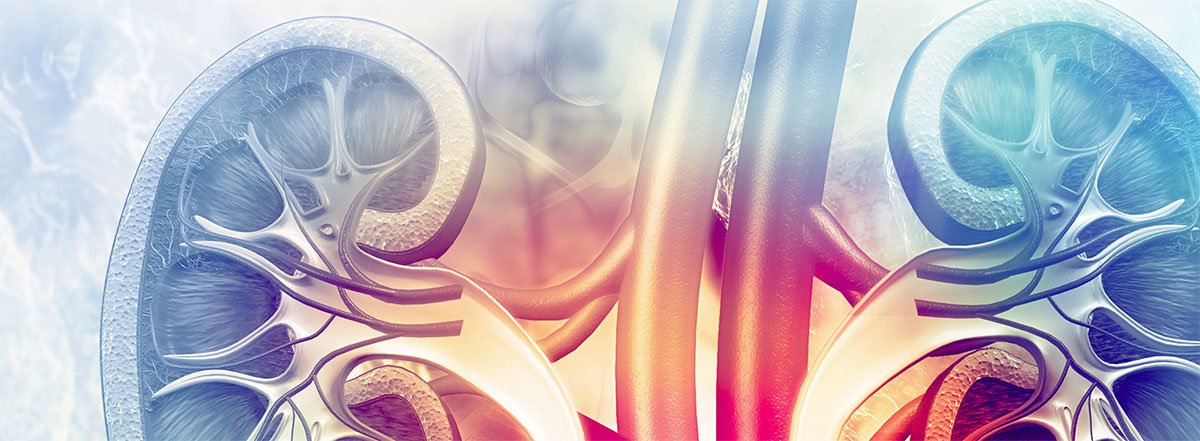Your doctor is concerned about your renal (kidney) function or another issue that is best addressed by a kidney specialist.
Frequently Asked Questions
A nephrologist is a medical doctor who specializes in diagnosing and treating kidney diseases. This includes managing high blood pressure, electrolyte imbalances, and conditions like chronic kidney disease, kidney failure, and inherited kidney disorders.
During your first visit, the nephrologist will review your medical history, discuss any current health concerns, review previous testing, and perform a physical exam. Based on your history and symptoms, additional tests may be ordered to better understand your kidney function and guide treatment.
It is important for you to bring the following items to your first appointment:
- Insurance card
- Photo ID
- Medications or medication list, including: dosage, frequency and milligrams
- New patient paperwork
- Any medical records you may have (we will copy them and return the originals to you)
- A personal calendar – to help schedule follow-up appointments
In addition, write down any questions you think of before your first visit. Bring these with you.
Lab tests provide important information about how your kidneys are working and if there has been any change. Kidney disease often has no symptoms, so regular blood and urine tests are essential to monitor your condition. These results help your nephrologist make informed decisions about your care.
Medications may have beneficial or harmful effects on your kidneys. Your nephrologist may adjust your medications based on your evaluation. He or she must also consider what you are already taking before adding any new medication.
Our nephrologists cover a large area of Houston including 24 dialysis units, 16 hospitals and 11 clinics. They are responsible for hospital consults, clinic visits, dialysis rounds and the heart and renal transplant program. The variety of services we provide allows our doctors to keep up with the latest information in each setting and bring this knowledge to our patients and the community.
The kidneys are bean-shaped organs located just below your rib cage in your back. They are primarily responsible for filtering your blood to remove toxins and waste products. They also help balance electrolytes and the blood acid level, and they remove excess fluid as urine to keep your body in balance. In addition, your kidneys produce hormones that prevent anemia, maintain healthy bones and regulate blood pressure.
Blood and urine tests are used to determine your kidney function. Routine blood tests used are Blood Urea Nitrogen (BUN) and Creatinine. These levels show your kidneys' ability to remove blood toxins and, in general, the higher these numbers, the lower your kidney function. GFR (glomerular filtration rate) is also typically included in routine blood tests. It’s not directly measured but calculated based on your creatinine level, age, sex, and other factors. In general, a lower GFR indicates reduced kidney function.
Not necessarily. While staying hydrated is important, drinking too much water can be harmful if your kidneys aren't functioning well. They may struggle to remove extra fluid, leading to swelling or high blood pressure. Ask your Renal Specialists of Houston doctor how much fluid is right for you.
The two leading causes of CKD are diabetes and high blood pressure. Other common causes include:
- Polycystic Kidney Disease: A genetic disorder that causes fluid-filled cysts on the kidneys
- Glomerulonephritis: Inflammation or damage to the kidney’s filtering units (glomeruli)
- Obstructive Uropathy: Blockage in the urinary tract that causes urine to back up into the kidneys
- Renovascular Disease: Narrowing or blockage of the blood vessels that supply the kidneys
Kidney failure occurs when your kidneys lose the ability to work well enough to support your body’s needs – and this can happen even if you are still making urine. There are two main types:
Acute Kidney Failure: A sudden loss of kidney function, often due to dehydration, severe infection, surgery, or certain medications. It may be reversible with prompt treatment.
Chronic Kidney Disease (CKD): A gradual, permanent loss of kidney function over time. When kidney function drops below 10%, dialysis or a kidney transplant may be needed. This stage is called End-Stage Renal Disease (ESRD).


